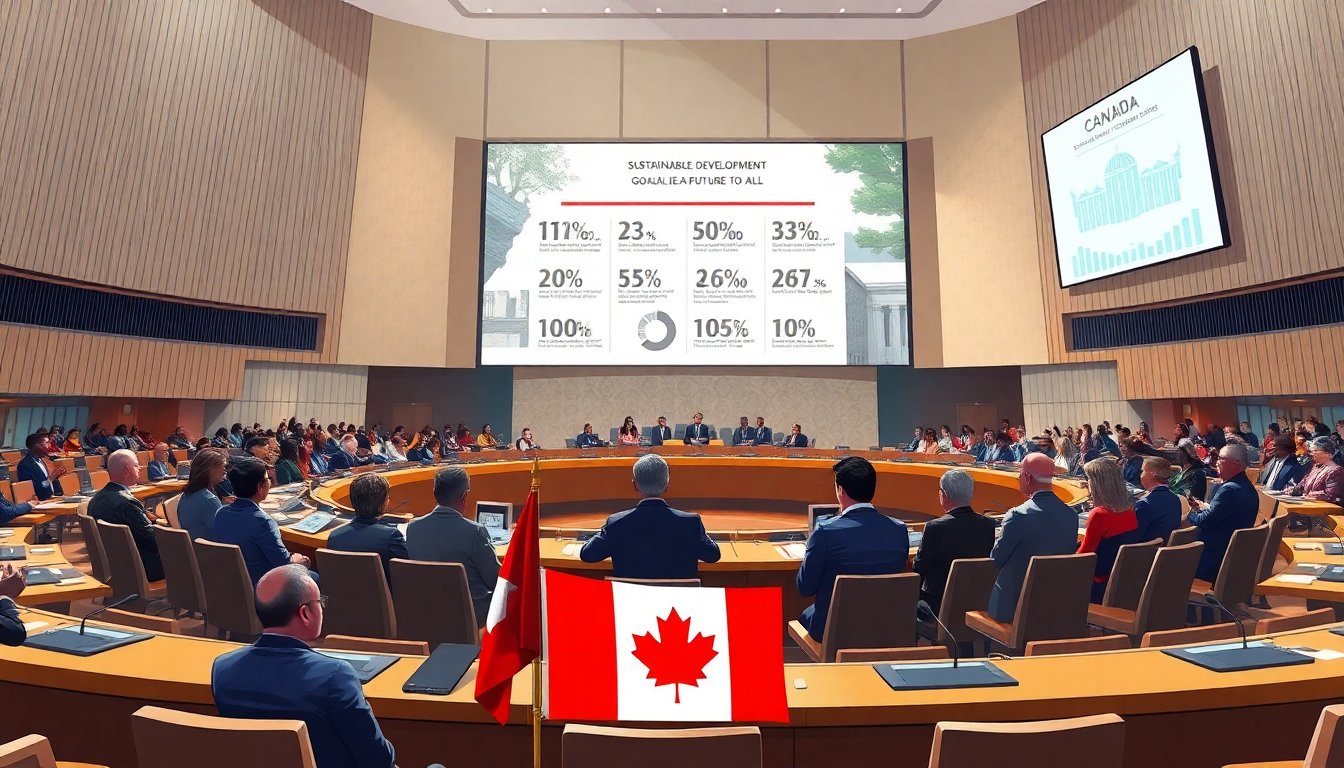Table of Contents
In her recent address to the United Nations General Assembly, Canada’s Foreign Affairs Minister Anita Anand emphasized the nation’s commitment to addressing the complexities of the contemporary global landscape. As multilateral institutions confront significant challenges, Anand reaffirmed that Canada will not retreat into isolationism but will actively engage in global affairs.
“Our goal is to foster a world where prosperity is equitable, security is collective, and peace is enduring,” she stated, encapsulating Canada’s vision amid rising geopolitical tensions and transformative changes.
Advocating for peace in the Middle East
During her speech, Anand highlighted Canada’s aspiration to facilitate a lasting resolution to the ongoing conflict between Israel and Palestine. She expressed support for regional partners striving for a ceasefire and emphasized Canada’s readiness to contribute to subsequent political processes.
Collaboration with international partners
Following her address, Anand spoke to The Canadian Press, revealing that she has engaged in discussions with U.S. Secretary of State Marco Rubio about Canada’s potential role in peace negotiations. Anand mentioned, “I have had numerous conversations with Secretary Rubio regarding how Canada can aid in advancing the peace process.” She also noted that Rubio has tasked her with rallying international support to strengthen this initiative.
In addition to addressing the Israeli-Palestinian conflict, Anand reiterated Canada’s commitment to tackling regional crises, including ongoing gang violence in Haiti and the quest for stability in Ukraine. She firmly stated that Canada must ensure Hamas does not play a role in the future governance of Palestine.
Global security and economic resilience
Canada’s foreign policy encompasses three primary pillars: bolstering defense alliances, enhancing economic resilience, and upholding core values such as human rights and environmental protection. Anand identified strengthening defense through NORAD and NATO as the first priority, emphasizing the importance of collective defense mechanisms in a world rife with uncertainty.
Building economic partnerships
The second priority focuses on fostering economic resilience through diversified supply chains and positioning Canada as an appealing destination for foreign investments. Anand remarked, “The trade agreements we pursue are not mere contracts; they serve as bridges to resilience and engines of growth, reinforcing the rules-based international trading system.”
While Anand did not specifically name the culprits undermining this system, she underlined the importance of these agreements in promoting a cooperative global environment. “These partnerships signify our commitment to a multilateral framework that benefits every participant,” she added.
Commitment to human rights and environmental values
Canada’s third priority intertwines economic initiatives with core values, emphasizing the significance of human rights, gender equality, and environmental protection, especially concerning the rights of Indigenous peoples in the Arctic. Anand defended established international agreements, such as the 1951 Refugee Convention, amidst discussions in the U.S. to modify asylum regulations.
Moreover, she acknowledged the Ottawa Treaty, which prohibits landmines, while noting concerns from various European nations regarding Russia’s actions that challenge established borders.
The future of the United Nations
“Our goal is to foster a world where prosperity is equitable, security is collective, and peace is enduring,” she stated, encapsulating Canada’s vision amid rising geopolitical tensions and transformative changes.0
“Our goal is to foster a world where prosperity is equitable, security is collective, and peace is enduring,” she stated, encapsulating Canada’s vision amid rising geopolitical tensions and transformative changes.1


